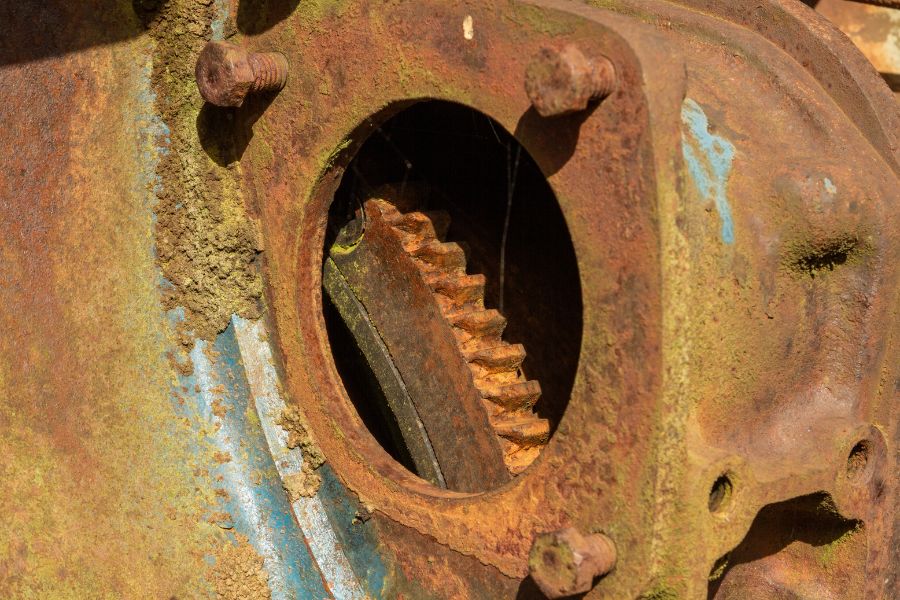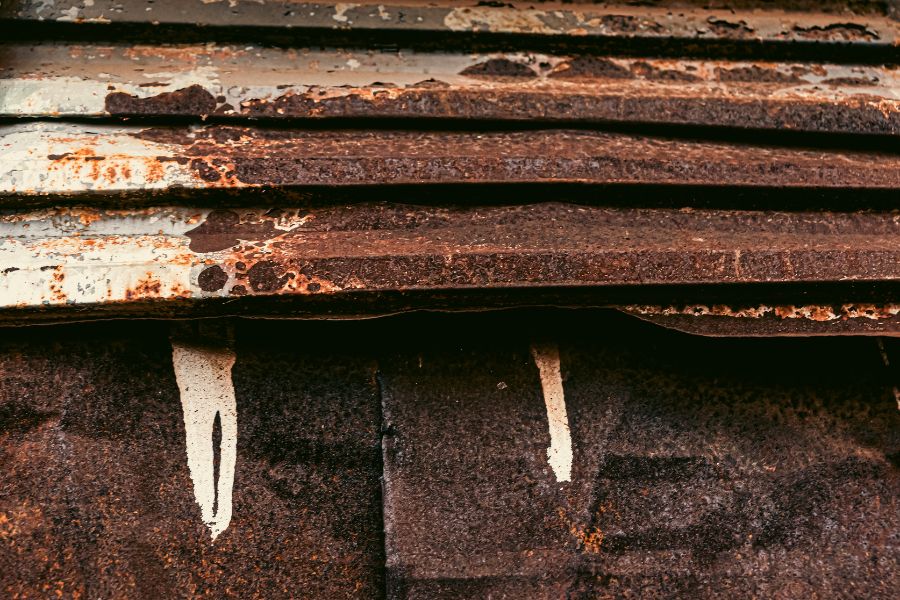Sustainable Corrosion-Resistant Materials for a Greener Future
Corrosion is a persistent issue that affects industries, infrastructure, and everyday applications worldwide. It leads to structural degradation, safety risks, and significant financial losses. Traditional approaches to combating corrosion often rely on non-renewable resources or toxic substances, which, while effective, can harm the environment. In the modern era, where sustainability is a global priority, the development and adoption of sustainable corrosion-resistant materials is crucial. These innovative materials offer dual benefits: extending the lifespan of structures while minimizing environmental impact.
Understanding Sustainable Corrosion-Resistant Materials
Sustainable corrosion-resistant materials are specifically designed to protect against corrosion while adhering to principles of environmental responsibility. Unlike conventional materials that may involve energy-intensive production processes or the use of harmful chemicals, sustainable options focus on eco-friendliness, recyclability, and reduced carbon footprints.
These materials prioritize longevity and performance, ensuring that infrastructure and equipment remain functional for extended periods. The primary aim is to reduce waste and conserve resources, contributing to a circular economy. For example, the use of recycled metals in producing corrosion-resistant alloys or the development of bio-based inhibitors for coatings are steps toward sustainability.
Sustainability in this context is not merely about reducing environmental harm; it is also about creating solutions that offer superior efficiency and economic value. By balancing environmental goals with technical performance, sustainable corrosion-resistant materials address the dual challenges of corrosion prevention and ecological preservation.
Types of Sustainable Corrosion-Resistant Materials
Innovative Coatings and Treatments
Protective coatings are a primary line of defense against corrosion. In sustainable alternatives, traditional chemical-heavy solutions are replaced by eco-friendly coatings made from non-toxic, bio-based components. These coatings effectively shield surfaces from moisture, oxygen, and corrosive agents while ensuring that the manufacturing and application processes are environmentally safe.
Bio-based inhibitors, derived from renewable sources like plants, are another innovation in corrosion resistance. These inhibitors offer similar or even better protection than synthetic chemicals, reducing reliance on petroleum-based products.
Advanced Alloys and Composites
Metals and alloys often face the brunt of corrosion, especially in harsh environments like marine or chemical industries. Sustainable approaches involve producing high-performance alloys using recycled materials. These alloys retain the strength and durability needed for demanding applications while reducing the environmental impact of mining and refining raw metals.
Composites, which combine materials for enhanced properties, are increasingly manufactured using renewable or recycled fibers. For example, the use of natural fibers or post-consumer recycled plastics in composites reduces waste and supports eco-friendly manufacturing practices.
Nanotechnology in Corrosion Resistance
Nanotechnology offers groundbreaking solutions for sustainable corrosion-resistant materials. Nano-coatings provide superior protection through ultra-thin layers that form a barrier against corrosive agents. These coatings are highly efficient, requiring less material while delivering exceptional performance.
Nanotechnology also enables the development of smart materials that respond to environmental changes, such as self-healing coatings that repair damage automatically, extending the life of infrastructure and reducing maintenance needs.
Benefits of Sustainable Corrosion-Resistant Materials
The adoption of sustainable corrosion-resistant materials brings a range of benefits, both practical and environmental.
- Enhanced Durability and Longevity: These materials ensure that infrastructure and equipment remain operational for longer periods, reducing the frequency of replacements. This not only saves resources but also lowers long-term costs for industries.
- Reduced Environmental Impact: By using eco-friendly materials and processes, industries can minimize their carbon footprint. For instance, coatings with bio-based inhibitors prevent toxic runoff into water systems.
- Cost-Effective Maintenance: Sustainable materials often require less maintenance over their lifespan, translating into financial savings for businesses and reduced downtime for critical infrastructure.
Additionally, the use of these materials supports global efforts to combat climate change by reducing greenhouse gas emissions associated with production, maintenance, and disposal.
Challenges in Adoption and Implementation
Despite their numerous advantages, the widespread adoption of sustainable corrosion-resistant materials faces certain challenges.
- Higher Initial Costs: Sustainable materials often involve advanced research and specialized manufacturing processes, making them more expensive upfront. This can deter industries from adopting them, especially in cost-sensitive sectors.
- Limited Awareness and Accessibility: Many industries are still unaware of the availability and benefits of these materials. Additionally, the production scale of sustainable options may not yet meet global demand.
- Integration with Existing Systems: Transitioning from traditional materials to sustainable ones requires significant changes in design, production, and application processes, which can be time-consuming and complex.
To overcome these barriers, governments and organizations must invest in research, incentivize the use of sustainable materials, and raise awareness of their long-term benefits.
Future Trends and Innovations
The future of corrosion-resistant materials lies in continued innovation and collaboration across industries, academia, and governments. Several trends are shaping this future:
- Bio-Inspired Materials: Researchers are drawing inspiration from nature to create materials that mimic the self-repairing properties of biological systems. These materials are designed to adapt and heal, ensuring long-lasting protection against corrosion.
- AI-Driven Material Design: Artificial intelligence is revolutionizing the development of materials by predicting performance, identifying optimal compositions, and accelerating testing processes. This allows for the creation of highly efficient corrosion-resistant materials tailored to specific applications.
- Regulatory and Policy Support: Governments worldwide are introducing policies to promote green technologies. These include incentives for industries that adopt sustainable materials and stricter regulations on the use of toxic substances.
As these trends gain momentum, sustainable materials will become more accessible and cost-effective, ensuring their widespread adoption.
FAQs: Frequently Asked Questions
What are corrosion-resistant materials?
Corrosion-resistant materials are substances designed to prevent or slow down the process of corrosion, protecting structures and equipment from degradation caused by environmental factors.
What are some examples of sustainable corrosion-resistant materials?
Examples include eco-friendly coatings with bio-based inhibitors, recycled metal alloys, composites made with renewable fibers, and nanotechnology-based coatings.
What are the benefits of using sustainable corrosion-resistant materials?
These materials enhance durability, reduce maintenance costs, minimize environmental impact, and support global sustainability efforts by lowering resource consumption and emissions.
What is the future of sustainable corrosion-resistant materials?
The future lies in innovations like bio-inspired materials, AI-driven material design, and government policies promoting green technologies, which will make these materials more efficient and widely adopted.
Closing Insights
At CORCON – Institute of Corrosion, we firmly believe that sustainable corrosion-resistant materials are pivotal in shaping a greener and more resilient future. These innovative materials seamlessly integrate the critical properties of corrosion resistance with a steadfast commitment to environmental stewardship, providing solutions that are both high-performing and eco-friendly.
Industries that embrace sustainable practices, including the use of these materials, not only extend the lifespan of their infrastructure but also align with global sustainability goals. Through our specialized courses on corrosion protection, CORCON equips professionals with the knowledge and expertise to drive innovation, adopt cutting-edge materials, and contribute to a world where infrastructure and the environment coexist harmoniously. Together, we can protect our planet and build a future that stands the test of time.
Image Reference: Freepik
Disclaimer: All trademarks, logos, and brand names are the property of their respective owners. All company, product, and service names used in this website are for identification purposes only. Use of these names, trademarks, and brands does not imply endorsement.

